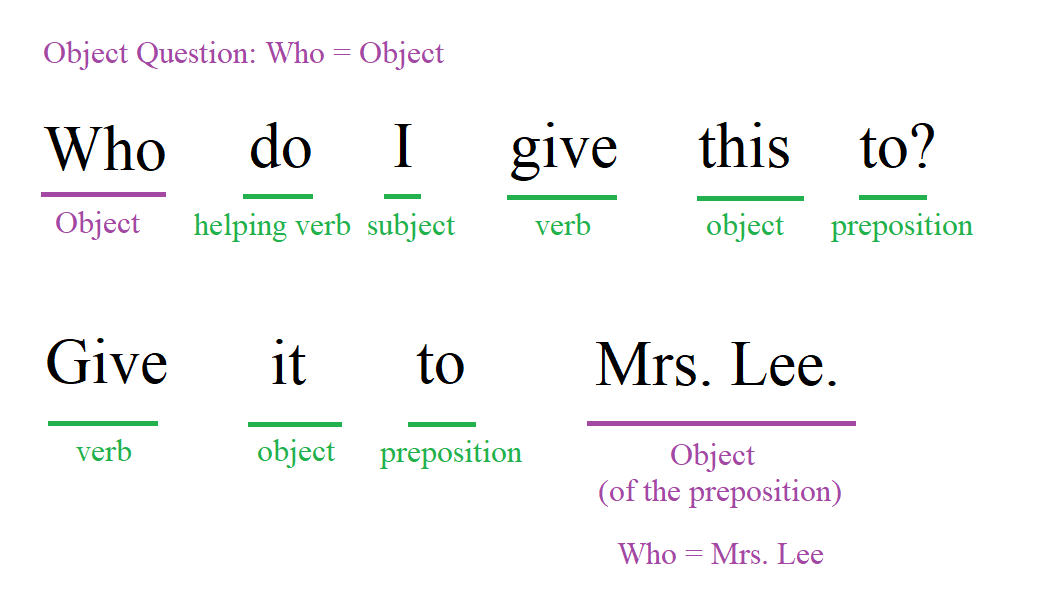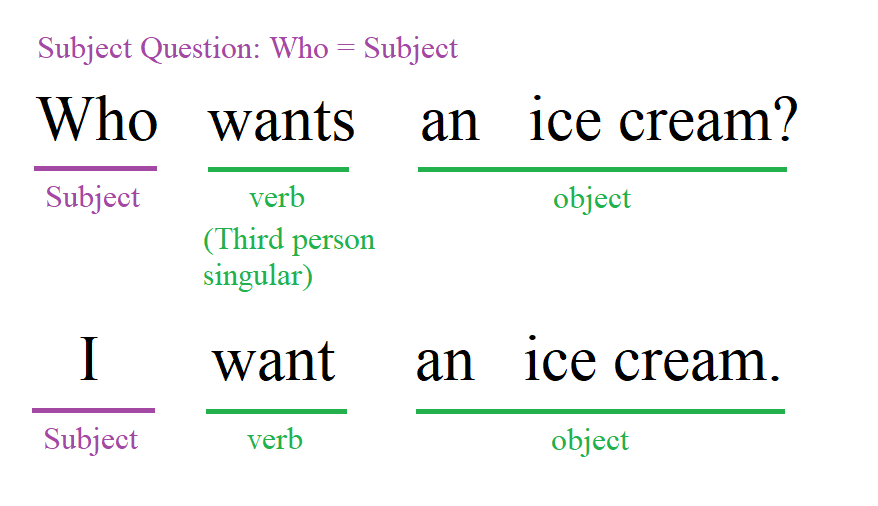Who Questions
- 'Who' can be used in both object and subject questions in the simple present tense.
- The structure of a 'who' object question is: Who + do/does + verb + (preposition).
- The structure of a 'who' subject question is: Who + verb + (object).
- The answer to an object question is an object.
- The answer to a subject question can be a subject of the sentence.
We will learn how to form and answer 'who' questions in the simple present tense. This topic covers both object questions and subject questions.
"Who" in Object Questions
'Who' is often used as an object in questions. This is when the answer to the question is an object.
The structure is: Who + do/does + subject + verb + (preposition)?

Examples:
-
Who do you like?
Question word ("Who") + helping verb ("do") + subject ("you") + verb ("like")?
-
I like Amy.
The answer ("Amy") is the object.
-
Who does your brother play with?
Question word ("Who") + helping verb ("does") + subject ("your brother") + verb ("play") + preposition ("with")?
-
My brother plays with my sister.
The answer ("my sister") is the object of the preposition ("with").
'Who' in Subject Questions
Sometimes 'Who' can also be used as a subject in questions. This is when the answer can be the subject of the sentence.
The structure is: Who + verb + (object)?

Examples:
-
Who loves pizza?
Question word ("Who") + verb ("loves") + object ("pizza")?
-
I love pizza.
The answer ("I") is the subject of the sentence.
-
Who writes the best poems?
Question word ("Who") + verb ("writes") + object ("the best poems")?
-
My mom writes the best poems.
The answer ("My mom") is the subject of the sentence.
-
Who is this person?
Question word ("Who") + be verb ("is") + complement ("this person")?
-
This is John.
The answer ("John") is the subject complement.
Practice this topic with the AI English Tutor
AI English Tutor will teach you the grammar and practice it with you in a conversation format. Plus, 100+ practice questions on this topic to cement your understanding.
Try ALULA for free on your phone or tablet








Do you have any questions about this lesson? Ask in the comment section, below.